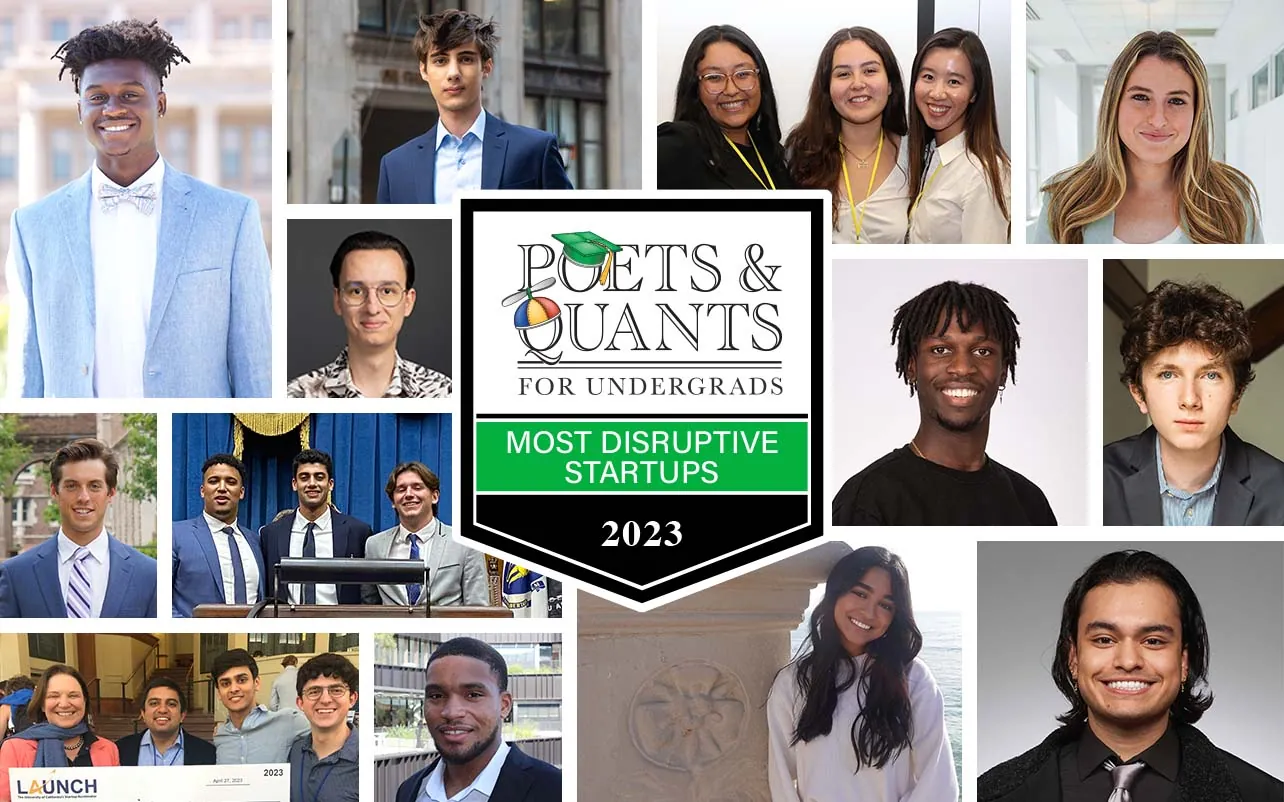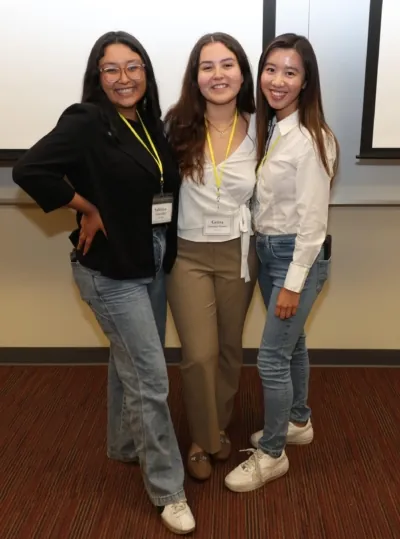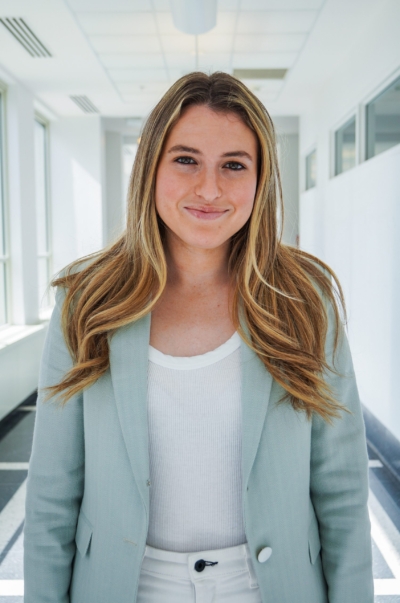
One man’s trash is another man’s treasure.
It can also represent a business opportunity – and a way to give back to the community.
Just ask Dylan Zajac, a junior majoring in Business Administration and Management at Babson College. Of course, Zajac is more than a student. He is also the founder and executive director of Computers For People, a 501(c)(3) non-profit that he started as a 15-year-old. And this isn’t just any startup – Zajac’s venture has attracted over $1.4 million dollars in investment.
HIRING THE CLIENTS YOU TRAIN

Dylan Zajac, Babson College
The venture was inspired by Zajac’s stepmother, who struggled to provide computers to her nonprofit clients. Quickly enough, he connected this need to one of his side hustles, where he saw numerous computers tossed away. “Something clicked in my head,” Zajac tells Poets&Quants. “I could significantly reduce the amount of electronic waste while bridging a digital gap in under-resourced communities seen around the world. The next day I bought the domain names for computers4people.org and computersforpeople.org.”
Computers For People, he says, “reduces electronic waste by collecting, refurbishing, and donating computers” to “promote equity and access to opportunity.” At the same time, he has expanded the company’s mission to supply free internet services and teach courses in computer building and literacy. Thus far, Zajac adds, his company has doled out 2,310 computers and hired 10 full-time employees – including some former clients. Even more, he has partnered with Babson College President Steve Spinelli to further his mission.
“He connected me with an IT company called Greenpages, which donated 150 laptops to Computers 4 People,” Zajac points out. “He was also instrumental in Babson College making its first donation of 300 laptops in the summer of 2022. President Spinelli has connected me with inspiring mentors, such as the directors of Babson’s Social Institute and Franchising Institute, and accomplished entrepreneurs from diverse backgrounds. Their guidance has provided me with invaluable insights spanning various facets of the business world, including the electronic recycling industry.”
GETTING YOUR GOODIES…IN 15 MINUTES OR LESS
Universities and colleges aren’t just supporting aspiring entrepreneurs – they’re training them. Many times, business schools are providing the coursework, coaching, workspace, and connections necessary for student ventures to get off the ground. For the third consecutive year, Poets&Quants is honoring these undergraduates in our “Most Disruptive Business School Startups.” This year, P&Q reached out to 25 of its highest-ranked business schools of 2023. Ultimately, we received 24 submissions from programs ranging from the Wharton School to Santa Clara University.
Like previous years, P&Q sought startups, founded by business majors, with the potential to scale into major players and upend markets – upstarts that are creating new business models, opening new markets, and fulfilling grand missions. Some are bootstraps still tweaking their prototypes. Others are emerging as local players that have drawn the attention of investors. Case in point: USC Marshall’s Handle Delivery. Founded by Chase Robbins and Mia McCarthy, Handle Delivery has earned $1.6 million dollars in funding. Call it the dorm room Door Dash, delivering over 500 convenience products to students “in 15 minutes or less” across four universities. The idea was spurred by COVID-19, with shut-in students unable to go out for smaller items like Ben & Jerry’s Ice Cream. Since then, the venture has expanded to five campuses across the United States, resulting in 100,000 orders and $300,000 in wages paid to students. Despite these successes, the founders remain humble – remembering full well just how far they have come.
“Early in our venture, we had a meeting with Emil Michael, the ex-COO of Uber who reported directly to Travis Kalanick and launched Uber China,” explains Chase Robbins. “We were completely unprepared and did not do a good job pitching him. He was kind, but gave us very honest feedback about how little we seemed to understand the business. Although we didn’t know it at the time, he was completely right. To this day we still joke about how poorly that meeting went.”

DUTCH founders (From Left): Sabrina Gonzalez, Gema Sanchez, Jodi Chui, Santa Clara University (Leavey)
FROM FOOD DELIVERIES TO ROADSIDE ASSISTANCE
The gig economy also inspired Carnegie Mellon’s Isaiah Rodgers to launch Clutch. Driving for Doordash, Rodgers would often find people stuck in their vehicles due to dead batteries, empty gas tanks, and flat tires. In response, he purchased items like jumper cables and a car jack to help these stranded drivers.
The situation gave Rodgers an epiphany: gig workers like him were already on the road. Why not leverage them to help stranded motorists – and make some extra money in the process?
“Whenever I was driving around and saw someone waiting for their roadside assistance provider, I would offer my services. Most of the time they agreed because a driver’s main concern in getting back on the road as soon as possible. Since then, I’ve been working to scale this business: a gig work service for roadside assistance that reduces wait times significantly.”
In some cases, undergraduate startups are designed to tackle issues students face every day. At Santa Clara University, three students met in a six-week design thinking lab. Here, they discussed how students – who often dine in group despite living on tight budgets – struggle with splitting checks. Eventually, they pooled their tech, legal, and business expertise to produce DUTCH, an app designed to tabulate who owes what up front. In contrast, an undergraduate team at the University of Michigan’s Ross School developed MeetYourClass. This social media platform enables students to “find roommates, friends, and opportunities on campus.” Thus far, MeetYourClass has attracted $120,000 from TechStars. Even more, the founders note, the platform has spread to 160 colleges and universities in its first year, with 190,000 users and a 99.61% satisfaction rate!
For Jonah Liss, one of the MeetYourClass founders, the real contribution from the business school curriculum might not be what you’d expect. “In a start-up, there is limited structure, and certainly no step-by-step playbook. Our team could not fully learn how to launch MeetYourClass in a classroom – too many steps of our “playbook” were hyperspecific to MeetYourClass and would not be relevant to most students. Nevertheless, going through the Ross BBA program, I was equipped with almost all the tools I needed to navigate a situation as ambiguous as launching a start-up. In a sense, I learned how to effectively learn.”
TURNING STOCK TRADING INTO FANTASY SPORTS

Casey Curtis, Indiana University (Kelley)
Elevate is another high-tech, high-potential solution, courtesy of Indiana University’s Kelley School. Founder Casey Curtis describes it as an automated “building management platform” that uses analytics to help residents call for an elevator – saving energy and cost in the process. In fact, Homeland Security partnered with Curtis to test the concept last year. Fast forward to Georgetown University’s McDonough School and Orbit. A neurotech and virtual reality solution, Orbit sends “electrical signals to the movement centers of the brain; [the] device allows you to feel the in-game movements (like flying and spinning) — creating a new level of gaming immersion.” Launched by Steven Pang and Colton El-Habr – and funded with over $550,000 in investment – Orbit fuels the imagination by enabling people to enjoy experiences beyond their physical and sensory limits.
“When I was a kid, I believed in magic,” Pang admits. “And people would always tell me, “Magic isn’t real.” I’ve always wanted to build something so amazing, so insanely magical that nobody would be able to tell me that magic isn’t real anymore. That’s what we’re building!”
StockSwap is another popular student venture, garnering investment to the tune of $350,000. Blake Berg, StockSwap’s founder and a Washington University senior, equates his venture to fantasy sports – only for the stock market. Translation: users can win prizes based on the performance of their stocks. Thus far, Berg has signed up 2,000 users and believes he is filling a critical gap in the marketplace.
“Retail investors are begging for a place to have fun with the stock market. The current solution is risky margin and options trading. This is unacceptable.”
Next Page: Robot Snow Shovelers, AI-Driven Musical Collaborations, and Best Courses For Student Entrepreneurs
Page 3: In-Depth Profiles of 24 Student Startups











Questions about this article? Email us or leave a comment below.